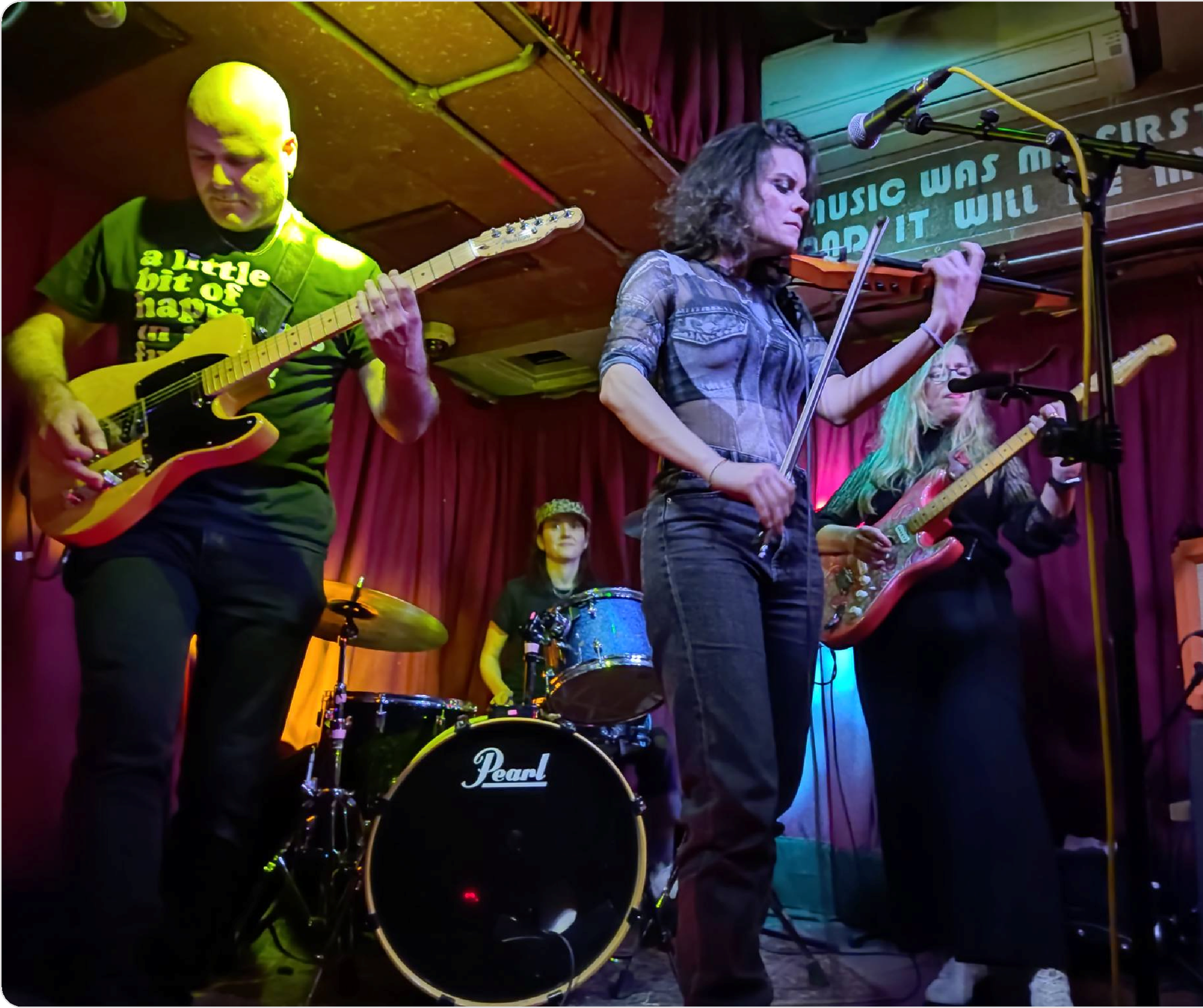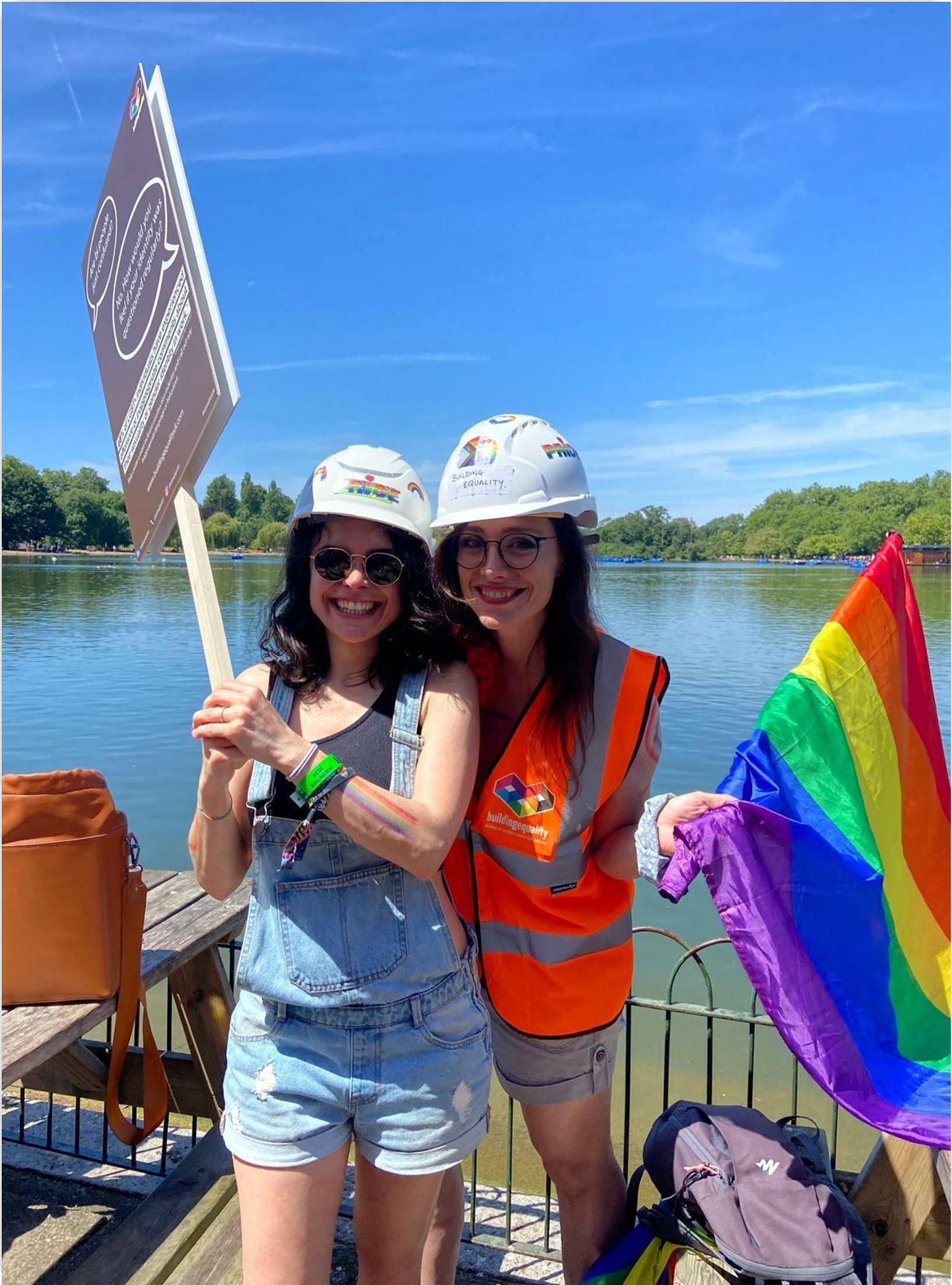
At Nando’s, women are making an impact across all areas of technology. In this Q&A, we speak with Aurora about her journey in tech and the challenges she’s faced.
I grew up playing classical violin. Music has been part of my life for as long as I can remember. At the age of 7, my mother enrolled me in a classical music academy, which eventually led me to study at the conservatory of music, where I completed my degree in violin performance.
Over the years, I’ve played with various orchestras and classical ensembles, and taught in different academies and schools. In 2014, I moved to London to continue my professional and artistic journey.
Music composition was always one of my passions too. I started writing songs quite young — mostly pop and rock pieces with my electric guitar, a Christmas gift from my parents. I’ve always loved both classical and popular music.
When I moved to London, I formed my own band – rock indie band with violin – and began learning a bit about music production. That experience led me to pursue a Master’s in Music Composition with New Technologies. At first, I was completely lost — I even had to upgrade my old laptop, and honestly, I didn’t even know what RAM was! My partner helped me buy a new one, and that’s when everything started to change.
The Master’s was incredible. I loved composing, but what truly fascinated me was discovering the creative power of computers. I couldn’t believe how much could be done with modern music software — and then I found out there were coding languages that could actually make music! That was the spark.
Around that time, a friend who had transitioned into tech shared her experience with me, and it all just clicked. I joined a coding bootcamp for women at Sky while also enrolling in a two-year online programming course — and I loved it from the very first minute.

I think the biggest challenges were finding the right course and managing my time effectively.
You really need to know yourself and set realistic goals. I’m a goal-oriented person, and I tend to fully commit only when I have clear milestones. That’s why enrolling in a structured course with real teachers, exams, and classes worked perfectly for me — it kept me on track. Most likely, if I had started with a self-paced online course, I would have dropped it at some point.
As for time, learning to code initially takes a lot of it, especially when getting familiar with the basics. But once you get past that, the learning curve becomes much smoother. You do have to make some sacrifices at the beginning, but it’s absolutely worth it.
Go and try it for yourself! See if it’s something you enjoy, but don’t let other people’s opinions influence you.
There’s a lot of stigma around tech careers — people often think it’s only for geniuses, or worse, only for men. The truth is, tech is huge and it’s for anyone who’s passionate about it. It covers a wide range of areas, not just coding — from the “dungeons” of data to the colourful world of design (a little joke for my beloved data nerdy friends).
It’s also useful to get a feel for it on your own: watch videos, explore some tutorials, and understand what the work actually involves. Keep in mind that many roles involve spending long hours at the computer, so it’s important to think about whether that suits your lifestyle and preferences.
I focus a lot on personal projects! I have periods where I barely code outside of work, and other periods where I feel like automating my entire life.
Building my own projects has personally taught me the most in my career. It’s a great way to gain hands-on experience, experiment freely, and deepen both technical and problem-solving skills.
Nando’s is a great place to work. It has a strong tech community where people genuinely support each other, and teams collaborate across departments. You rarely feel alone when facing an issue, a bug, or any challenge you need to tackle.
The company also has diverse teams, which gives people the opportunity to learn different technologies and explore various areas. They value individuals for what they bring to the table, not for what they assume someone “should” know.
Diversity is truly part of their core values. Being a South African company, they have a deep understanding of what diversity means, and they actively incorporate that into their culture and ways of working.
Visibility of different experiences is fundamental to unlocking the full potential, not just of a company, but of us as human beings, as a society, and as a world together. It’s absolutely a must.
I would probably start earlier
Meeting amazing and inspiring women engineers
